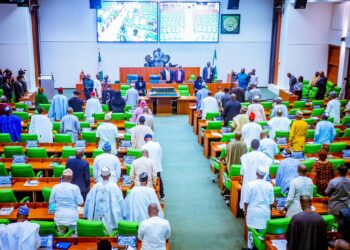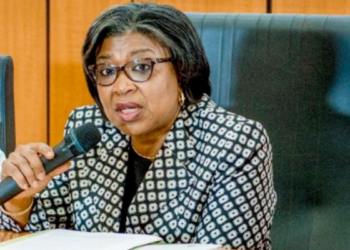The Inflation Attitudes Survey report for Q4 2020, conducted by the Statistics Department of the Central Bank of Nigeria has revealed that a majority of respondents believe a continuous inflation rate may weaken the economy.
Respondents were asked what would become of the Nigerian economy if prices started to rise faster than they do now. The survey result showed that:
- 60.1.8% of the respondents believed that the economy would end up weaker.
- 8.4% stated that it would be stronger.
- 12.8% of the respondents believed it would make a little difference.
- 7.9% did not know.
When asked how prices have changed over the past 12 months, respondents gave a median answer of 6.2%. Of the total respondents:
- 1.7% thought prices had gone down or not changed.
- 79.1% felt that prices had risen by at least 3.0%.
- 18.3% felt that prices inched up by more than 1.0% but less than 3.0 per cent.
- 0.9% had no idea.
The survey results is consistent with the notion that inflation constrains economic growth.
Key highlights from the report
- Respondents believe that the economy will end up weaker if prices start to rise faster than they do now.
- Given a trade-off between inflation and interest rates, more respondents prefer interest rates to fall than inflation rate.
- Majority of the respondents have no idea as to who influences the direction of interest rates in Nigeria.
Why this matters
- Inflation expectations and public understanding of what influences them are important parameters for effective monetary policy formulation. Taking people’s opinions into consideration when formulating policies increases the likelihood of formulating sustainable policies, compared with when policies are formulated without recourse to people’s opinions.
What you should know
- The conduct of the Inflation Attitudes Survey (IAS) by the Statistics Department of the Central Bank of Nigeria commenced in June 2009.
- The Statistics Department collects on a quarterly basis, the views of households on changes in prices of goods and services in the last twelve months, and their expectations of price changes over the next twelve months.
- Respondents’ opinions were used to further explore the general public’s understanding of the country’s monetary policy framework.
- The 2020 Q4 Inflation Attitudes Survey was conducted during the period of 16-25 November 2020, with a sample size of 2070 Households randomly selected from 207 Enumeration Areas (EAs) across the country. The Q42020 survey had a response rate of 98.7per cent.
- Nairametrics recently reported that Nigeria’s inflation rate hits 14.89% in November as food inflation spikes.






















